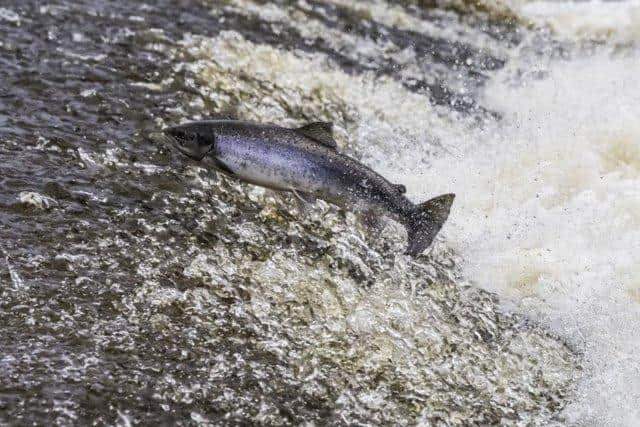New strategy launched to help bring Scotland's salmon back from the brink
Atlantic salmon is a protected species, but complex factors such as climate change and the loss of riverside woodlands have led to years of decline.
SNP ministers have now highlighted a range of actions to try to address this, including improving the condition of rivers.


Advertisement
Hide AdAdvertisement
Hide AdIt comes as the salmon fishing season on the River Tay opens this weekend, with most other rivers following next month.
Rural affairs secretary Mairi Gougeon said there was "significant evidence showing that populations of Atlantic salmon are at crisis point".
Salmon and trout angling is worth tens of millions of pounds to Scotland' s economy, with the fish also playing a vital part in river ecosystems.
However, the number of salmon returning to Scotland’s coast has declined since the early 1970s.
The estimated number spawning in Scottish rivers has fallen from 2010 onwards.
More than half of Scotland's rivers or groups of rivers are classed as being in a poor conservation status.
The new strategy highlights five "priority themes for action", including improving the condition of rivers, managing exploitation, understanding and mitigating pressures, international collaboration and developing a modernised policy framework.
The moves include reviewing enforcement powers and potentially hiking penalties for salmon poaching.
Annual season close times will also be examined.
Advertisement
Hide AdAdvertisement
Hide AdMs Gougeon said: “I am grateful to the many organisations which have contributed to the development of this important and ground-breaking strategy for wild salmon in Scotland.
“There is now significant evidence showing that populations of Atlantic salmon are at crisis point and we must now reinvigorate our collective efforts to ensure a positive future for the species.
“Although the pattern of decline is repeated across the salmon’s North Atlantic range, with climate change a significant factor, there remains much that we can do in our rivers, lochs and coastal waters to seek to build resilience and transform the fortunes of this iconic fish.
“In addition to the measures we will take in Scotland, we are committed to supporting and pushing forward collective action in the international arena, so the young salmon leaving our rivers survive the many challenges they face on the high seas to return to their home river to spawn the next generation.
"Only by acting together, at home and overseas, and applying our collective resource, knowledge and expertise can we hope to change the fortunes of this iconic and vital species.”
The strategy document says it is “framed around a high-level vision and objectives that will guide collective action”.
It adds: “The nature of salmon and the range of pressures they face throughout their remarkable life cycle requires that the action we take must be extensive and delivered at pace.
"Salmon have been the subject of a long history of legislation and governance, but we must now ensure that the framework for collective action is fit for the challenges we face now and in future, not least in the context of a changing climate.”
Comments
Want to join the conversation? Please or to comment on this article.

